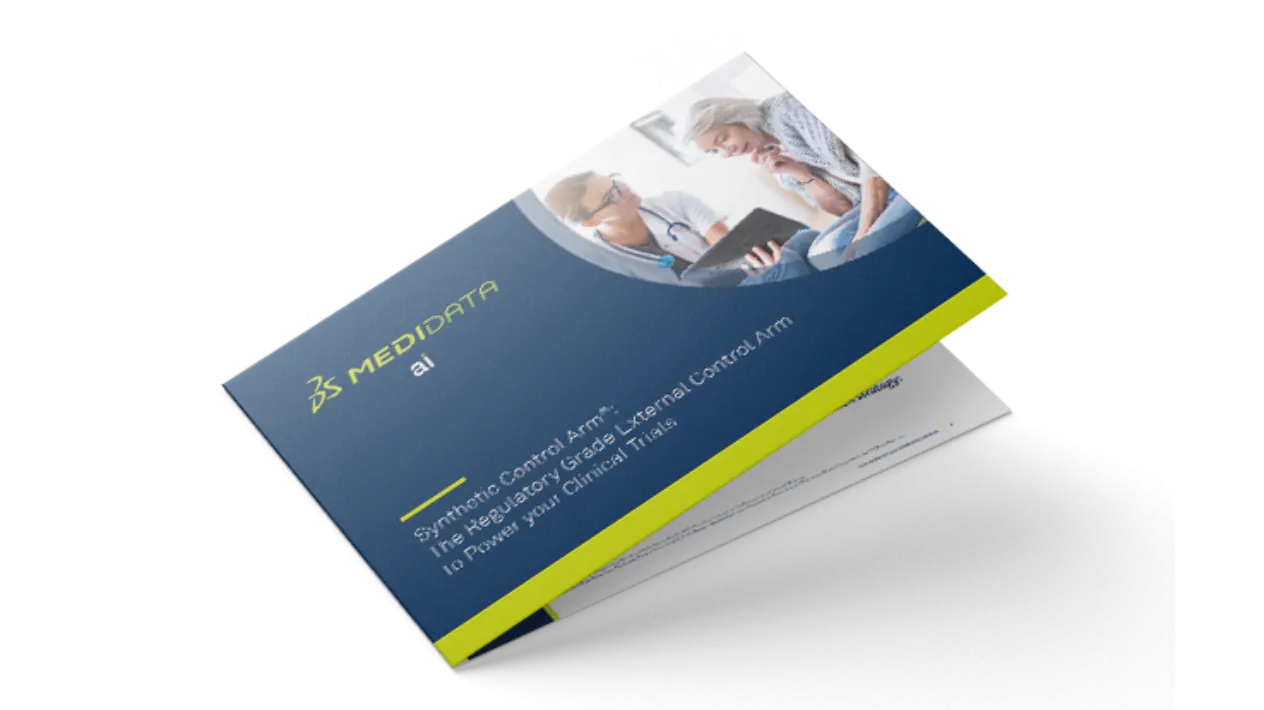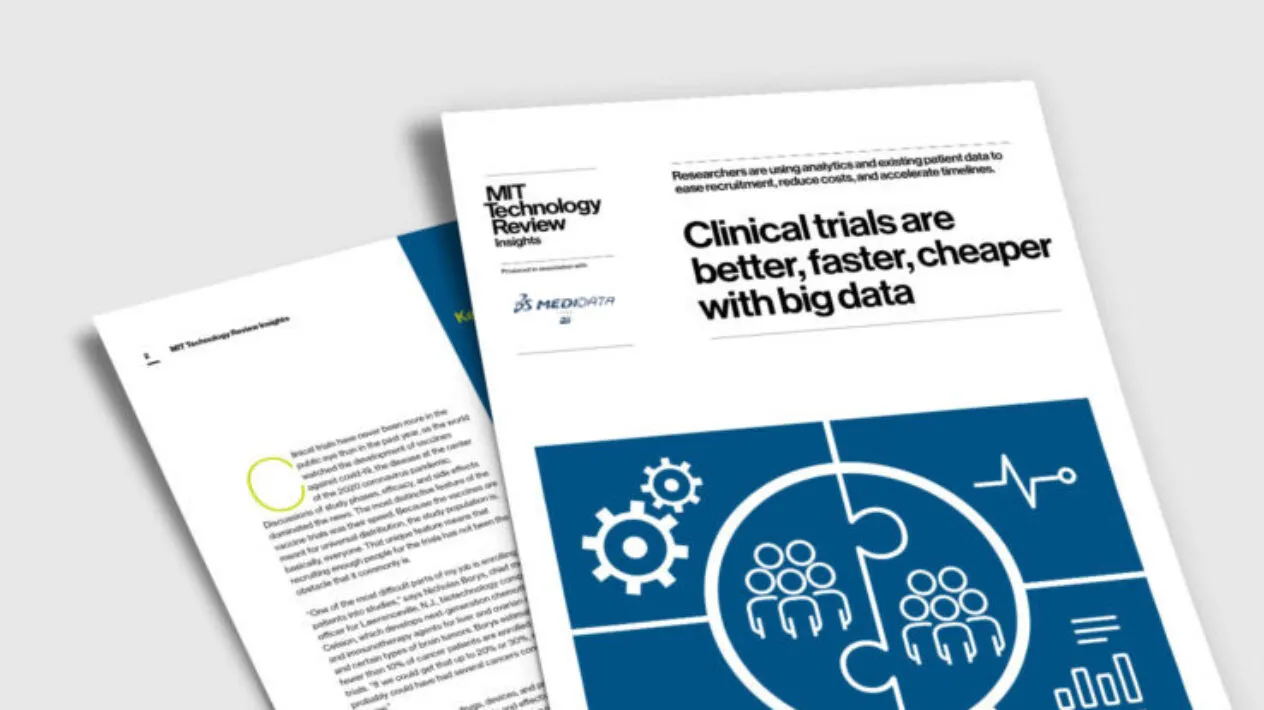Synthetic Control Arm®
Medidata Synthetic Control Arm (SCA®), part of the Medidata Study Experience, offers the only external control arm created with cross-industry historical clinical trial data from 36,000 clinical trials and 11 million patients.
SCA can enable scientific research, cut costs and accelerate timelines in scenarios where a control group is hard to recruit or retain, such as rare or imminently life-threatening diseases with inadequate standard of care treatments, like some cancers.
Why SCA: The Smart External Control

Navigate Regulatory Conversations
An SCA can help sponsors compare patient outcomes from novel and standard of care therapies to enhance single-arm Phase II trials, accelerated approval submissions, and in certain indications confirmatory Phase III clinical trials. Whether you are looking to bolster your findings to advance to the next phase of your study, or augment or replace a control group, our highly-qualified teams are collaborative partners who work as an extension of your team.
The Medidata AI team includes former members of FDA, pharma, and research community with regulatory, biostatistics, data science, and medical oncology expertise.

Make Evidence-Based Decisions
An SCA brings together the best evidence to help you feel confident as you move forward in your trials.
Complete with covariates and endpoints as they were captured in clinical trials, our robust historical clinical trial data provides the best commercially available comparator data that can accurately reflect control groups for your patient subpopulation.

Accelerate Clinical Trial Timelines
Synthetic Control Arm can help sponsors ease patient recruitment and retention challenges without compromising the scientific conclusions that can be drawn, especially in instances where the standard of care is deemed unacceptable.
That means more patients can receive new potentially life-saving treatment and sponsors can realize faster enrollment with a greater chance at success – from a better designed clinical trial, to a more robust control arm, to stronger positioning of a drug for commercialization.
Learn how Medidata helped Medicenna reduce their Phase 3 registration trial enrollment by 2/3.

Leverage Scientifically Rigorous External Control Groups
Medidata AI’s SCA is constructed using carefully selected patient level data to yield a baseline composition that is statistically well balanced with the experimental arm. Cohorts are built using patient-level data from patients in previous clinical trials in the same indication, who met key eligibility criteria and received the standard of care.
Statistical methods are then applied in a dynamic matching process that uses the baseline demographics and disease characteristics for each patient in the experimental trial to generate a historical patient group that closely matches the experimentally treated patients.
Uses of Synthetic Control Arms

Single-Arm Clinical Trials
In trials where a regular control group is impractical, an SCA is a vast improvement over the most common method: searching existing medical literature for comparisons.
Instead, investigators can leverage patient-level data using an SCA created from Medidata’s database of 9 million+ clinical trial patients to precisely choose matching control and test patients. This method ensures a more scientifically valid comparison of the two groups.

Hybrid Models
Replacing traditional control arms with external data faces more scrutiny. But a hybrid design, in which external controls supplement rather than replace a standard control arm, has previously received FDA agreement. For severe indications with unmet medical need and an inadequate standard of care, a hybrid SCA can reduce the number of patients assigned to the control therapy, provide rigorous scientific data, and enable speedier development of a product.

Accelerated Approvals
In many instances, sponsors may seek evaluation of a product for FDA accelerated approval using a single arm trial and benchmarking with medical literature or clinical intuition. The FDA has shown an appetite for comparing these single arm trials with an external control. This approach can assure a better balance in baseline condition.
See how Medidata partnered with Celsion to provide data and analysis in support of their FDA Fast Track Designation in Ovarian Cancer clinical trial.
Related Solutions
Learn More

Synthetic Control Arm: The Regulatory Grade External Control Arm to Power your Clinical Trials; Synthetic Control Arm in Clinical Trial
This eBook provides guidance on:
- The increasing role of External Control Arms
- The differences between control groups built using real world data (RWD) and an SCA containing historical clinical trial data
- The successful impact of SCA on clinical trial design decisions and regulatory conversations
Download this 10-page white paper analyzes how a Synthetic Control Arm can benefit your trials, including:
- Defining a Synthetic Control Arm
- Components needed to build a Synthetic Control Arm
- Benefits for patients and sponsors
- Case studies in non-small-cell lung cancer (NSCLC), multiple myeloma, and from Celsion Corporate

Synthetic Control Arm Webinars
Watch our latest webinars on SCA.

White Paper: MIT Technology Review
Download this white paper, in partnership with MIT Technology Review, to learn how Celsion leverages Medidata’s historical clinical trial data to create “external control arms” and speed up the clinical trial process.




